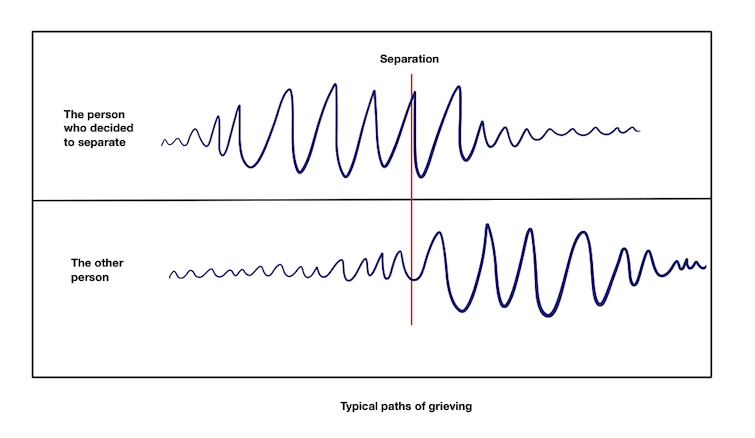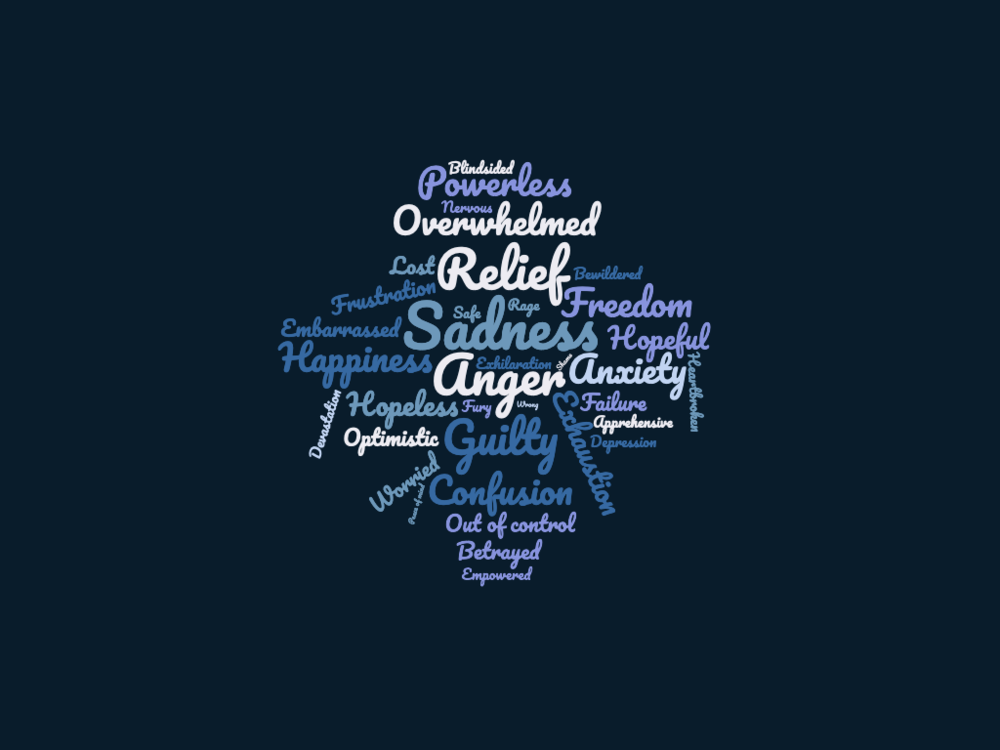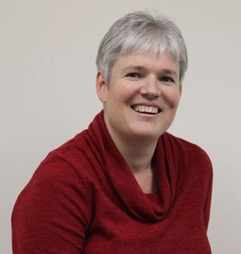Saying “separation is hard” is one of life’s great understatements. As a family law mediator I regularly hear clients express surprise about the complexity and unpredictability of the emotional side of separation. Often that surprise comes with a hefty dollop of self-criticism, and fear that their feelings aren’t ‘normal’.
Riding the emotional rollercoaster, and supporting your children on their own roller-coaster ride, can feel a little safer if you’re armed with some extra information.
So many emotions
In a previous job I led workshops for people who had recently separated. During the workshop I would ask people “What are some of the feelings you’ve experienced during separation?” There were some words that came out every time – sadness, anger, fear, guilt and relief. There were others that made regular appearances – betrayal, happiness, anxiety and freedom. Whatever the particular words were, there was always a great range of feelings described, and every contribution was met by nods of recognition from others in the group. So whatever range of feelings you have been experiencing – you can be sure you’re not alone.
Two tasks of grieving
When people talk about grief one usually thinks of the loss when a loved one dies. But separation is also an experience of loss – and the emotional journey of separation is one of grieving. There are many theories of how grief works, but one that I find particularly helpful in the separation space is Worden’s suggestion that there are specific tasks to be completed when grieving. He identities four tasks, but there are two that I see most clearly in people going through separation – the task of feeling the pain of the losses and the task of building a new life.
Chances are that you’ll find yourself working on both these tasks in any given week (sometimes in any given day!) And if you find that you’re caught in one for a long time then it might be that your grieving has gotten stuck. Counsellors and psychologists can help you get unstuck so that you can keep working on all the tasks of grieving.
Everyone is on their own rollercoaster
In most separations one person is more of a decider than the other. Sometimes the difference is very stark and the person who learns that their spouse or partner wants to separate is blindsided. Other times both people have known the relationship was in trouble, but one person stepped over the line and called for the separation first.
The person who decided to separate will, typically, have done a lot of their grieving before the separation happens (though they may not have shown it to the other person). Not long after separation they’ll be ready to start building a new life.
The person who receives the news that their spouse wants to separate will, typically, do the bulk of their grieving after the separation, and it will, usually, be longer before they are ready to start planning their future.

Your children’s feelings will probably be different to yours
In the workshops where I asked people to identify the emotions that accompany separation I also asked them to name the feelings that they think their children would be experiencing. Most times we ended up with a very similar list. And that’s valid, because children do, typically, experience the same wide range of emotions when their parents separate – including anger, sadness, anxiety, confusion, and even guilt and relief.
But that doesn’t mean that your children will experience the same set of emotions as you. And the unpredictable cycle of the feelings you’ll each be experiencing also means that at any given moment in time they’ll probably be feeling differently to you. It is important for your children to have the space to talk about their feelings when they need to. Key to creating that space for them will be for you to be OK with them being in a different emotional place to you. That’s not always easy to do. If you’re finding it tricky then reach out to friends or family who are good listeners, or to a professional support person such as a counsellor or psychologist, so that you can have the headspace you’ll need to support your children through their grieving.
Everyone has their own unique experience
I’ve talked in this article about some typical experiences of emotion during separation – but it is important to remember that there are many factors that affect how a particular individual grieves. The way in which a separation happens, the timing of the separation and a person’s past experiences of loss and grief can all affect how quickly, and how completely, the wounds of separation heal.
Look for family law professionals who are comfortable with emotion
As you and your former partner make decisions for the future – about financial settlement and parenting arrangements – you’re likely to need advice and assistance from professionals such as family dispute resolution practitioners, lawyers and financial advisers. These people will be helping you with the second of the tasks of grieving – the building of a new life. But sometimes you’ll be seeing them on a day when you’re more in the zone of the first task – feeling the pain. They’ll be much better equipped to help you if they’re someone who is OK with a bit of emotional messiness sometimes.




